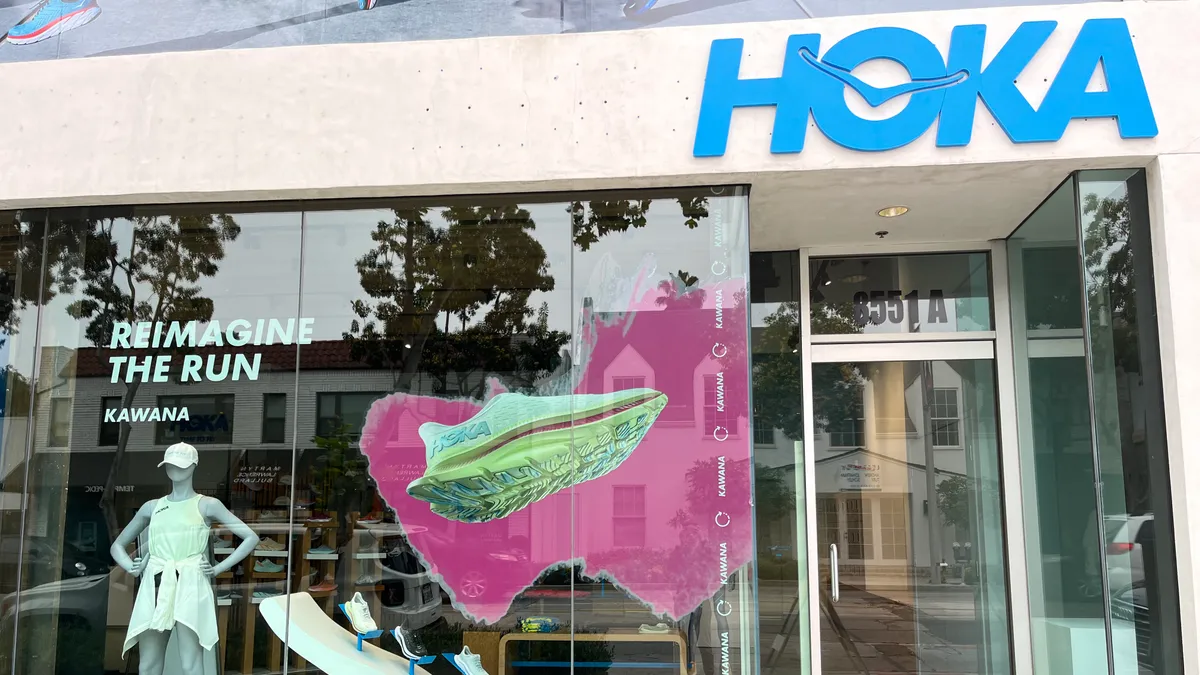On Christmas Day, many U.S. families wake up to find a gun under the tree. That's because in years past the holiday season has been one of the busiest times of the year for gun sales.
In November 2019, there were an estimated 1,423,869 firearms sales, a 1.4% increase over the same period last year, according to an analysis by Small Arms Analytics & Forecasting. The estimate is based on data from the Federal Bureau of Investigation's National Instant Criminal Background Check System (NICS) adjusted for checks the firm says likely did not result in a sale. Exact sales figures for firearms are hard to come by, but the NICS is used as a broad indicator. According to NICS, there were 2,574,752 background checks conducted in November 2019.
If prior years are any indication, December sales will continue to power the category. NICS records show 2,543,385 background checks were conducted in December 2018, down from a 20-year peak for the period of 3,314,594 in December 2015. (There are, of course, considerable legal requirements that must be adhered to when gifting a gun, including state background check requirements.)
Two of the nation's largest retailers in the category, Dick's Sporting Goods and Walmart, reduced the retail availability of guns this year when they began to limit or eliminate firearms and ammunitions from their retail floors ahead of the holiday shopping season.
A little background
For Dick's, the decision to exit the market began in earnest in February 2018, when the company announced it had permanently stopped selling high capacity magazines and assault-style weapons in its 850 Dick's stores and 35 Field & Stream stores, and also limited firearms sales to customers 21 and older. Also in 2018, the company removed hunting gear from ten of its stores, and in March 2019, removed hunting from another 125 stores, with indications that the category might eventually be removed from all its stores.
Dick's further distanced itself hunting in October 2019 when it sold eight of its 35 Field & Stream stores to Sportsman's Warehouse. That same month, Dick's CEO Ed Stack announced that his company would destroy its assault weapons inventory — over $5 million worth — rather than return it to manufacturers.
Walmart's disarmament may be even more impactful. According to The New York Times, the company controls about 2% of the nation's firearm market and 20% of its ammunition market across its 4,759 U.S. stores. Yet it too has been backing away from the category, albeit slowly. Walmart stopped selling assault-style rifles in 2015, and in 2018, it raised the minimum age to purchase guns and ammunition to 21.
Following two 2019 shootings in its own stores, Walmart decided to stop selling handgun and assault-style ammunition, which is expected to reduce its share of the ammunition market to as little as 6%. The store additionally requested that customers no longer open carry in its stores — a policy that has, according to Vox, spread to other retailers, including drug and grocery chains such as Kroger, CVS, Walgreens, Wegmans, Aldi and Meijer.
On the other side of the firearms aisle is privately-held outdoor retailer Bass Pro Shops, which acquired hunting retailer Cabela's in 2017 for $5 billion. Although the company is significantly smaller than both Dick's and Walmart, it's nevertheless one of the more dominant players in firearms. The company, which also owns boating brand White River Marine Group, has a combined 184 stores, including Cabela's locations in the U.S. and Canada. In addition to selling firearms and ammunition in its stores, the retailer also sells them online.
Gun sales down
Overall, the number of guns sold over the past three years has dipped from 15.7 million in 2016 to 13.1 million in 2018, in what's been called the "Trump Slump," according to Reuters reporting based on information from the National Shooting Sports Foundation. A June 2019 Business Insider story said that this has affected retail sales in the $40 billion industry, and impacted the bottom lines at companies including American Outdoor Brands (formerly Smith & Wesson); Sturm, Ruger & Co.; and Olin's Winchester brand.
Even Cabela's firearms sales were soft at the time of its acquisition. Tommy Millner, Cabela’s CEO at the time, said on a Q2 2017 earnings call that following the 2016 presidential election, they'd "continued to see a slowdown in firearms and shooting related categories." He blamed "the anniversary of a number of events from a year ago, including the Orlando tragedy in June of 2016" as well as "softness in most hunting related categories." Bass Pro Shops, which owns the Cabela's brand, did not respond to requests for comment on this story.
According to Alex Yablon, a reporter at The Trace, an independent, nonprofit news organization dedicated to expanding coverage of guns in the United States, gun buying slowed following the 2016 elections. He explained in an email to Retail Dive that gun sales had skyrocketed under the Obama administration, because gun enthusiasts had a credible fear that a Democratic president could pass new gun laws. "In contrast, despite the nationwide outcry after Parkland, Republicans still control much of the federal government and many state governments," he said. "So [pro-gun control] activists could not effectively pressure politicians to pass new gun laws, and gun buyers could relax. That could be changing, as the 2020 election approaches. Federal data shows that a years-long slump in background check totals seems to have abated in August [2019], with checks up significantly in the last three months."
The holiday impact
For this year's holiday season, though, it's unlikely that the political landscape will have much impact on bottom lines. "We don't anticipate that gun sales and open carry will have an effect on shopping for holiday," said Emily Stoner, senior research analyst at CivicScience.
Still, the company acknowledged certain shifts. "It looks like Dick's took a harder hit from conservatives and gun favorable people after their decision to melt guns," said Mary Acklin, marketing manager at CivicScience, in an email to Retail Dive. "But those concerned with gun violence had a stronger reaction in favorability towards the brand after this. Basically, the changes in favorability even themselves out, and we're not really going to see these things affecting holiday spending, at least from our view of tracked brand favorability."
Yablon agreed. "I don't expect Dick's or Walmart will see their holiday earnings significantly affected by their public stances on guns and ammunition," he said. "Dick's sales already rebounded last quarter. Any pain the company suffered from its decision not to stock particular kinds of firearms seems to have abated. While Walmart has historically been the biggest gun seller in the country, it's such a vast company that guns aren't really a big part of its business so it can afford to distance itself from firearms."
A CivicScience survey of 1,380 U.S. adult Walmart shoppers found that 29% are more likely to shop in Walmart stores due to the changed open carry policy, with 22% saying they are "much more likely." Only 19% said they are less likely, including 14% who said they are "much less likely."
Gun sales a challenge for retailers
Holiday gun sales have always been challenging for general market retailers. "Thinking about the complexity it takes to support the deep enthusiast category in firearms, and that's a lot of expertise," said Greg Portell, lead partner in the global consumer and retail practice of A.T. Kearney, a strategy and management consulting firm. "You’re not talking about a seasonal worker. So when you pull out firearms categories, you're simplifying seasonal sales."
For stores geared towards hunters, rather than deep category firearms enthusiasts, the impacts are even less significant. In part that's because hunting purchases predate the holidays due to the timing of hunting seasons. Additionally, there are fewer hunters nowadays. "Dick's and Walmart were catering overwhelmingly to hunters, and that market has come down," said Mark Lipton, a graduate professor of management at The New School. "There are 2.2 million fewer people are hunting now [than in 2011], based on the number of people licensed."
In response to a request for comment, a Dick's spokesperson referred Retail Dive to its Q2 2019 earnings call, which addressed the repercussions of removing the hunting department in several of its stores. The company at the time said, "We're enthusiastic about the three main categories of our business: apparel, footwear and hard lines." Dick's CEO Ed Stack said on the call, "Even with the continued deterioration in the hunt business and the firearms business, we've been able to make up for that in these other categories and we expect to be able to do that through the balance of the year."
In Q3 2019, its most recent quarter, Dick's reported a same-store sales increase of 6%, its highest comps gain since 2013, according to a company release.
A lot of holiday shopping also relies on cross-category buying, which is challenging when it comes to guns. "Firearms are a tough category to co-merchandise," said Portell. "You wouldn't buy a firearm and a sweater. Now, if you're an enthusiast in any category, you're very focused on going deep in that category. But you don't have an appeal as a broad merchandise buyer. And Walmart and Dick's are not going after the enthusiasts."
Walmart, as a general merchandise retailer, is in a good position to make up for whatever lost sales may come from its diminished hunting space. Although the company did not respond to requests for comment, the company's overall U.S. growth has been positive and the company continues to perform well by most metrics quarter after quarter.
Picking up the slack
The holiday firearms shoppers who will be underserved by Dick's and Walmart may soon provide new revenue to the stores that still cater to them. "Clearly the sales volume will go elsewhere," said Portell. "The shift of volume would be very advantageous for Cabela's and Bass Pro. And they have an opportunity to capture demand that is floating and available. What Bass Pro and Cabela's offer is a deep knowledge of the category if they choose to." Portell said that independent gun shops should also be expected to benefit. "If Cabela's and Bass Pro don't pick up the slack, local gun shops will benefit."
Lipton agreed. "I think [guns] represent a somewhat larger percentage at Cabela's," he said. "They're clearly picking up the slack from Walmart and Dick's with hunters, but it's a declining army, because hunters don't build armories in their basements."
Yablon is more conservative in his assessment. "It's more difficult to comment on Bass Pro Shops and its Cabela's subsidiary, because it is a privately held company," said Yablon. "We haven't seen an earnings statement from Cabela's since it was acquired. I expect that they have already derived any benefit from decisions made by Dick's or Walmart to, for instance, stop selling assault weapons or other firearms."
Response and responsibility
The end result may be that the impact of Walmart's and Dick's firearms retailing decisions on both their holiday sales and the sales of rival stores such as Cabela's may be negligible. But that doesn’t mean it's not instructional. "We’re not going to know until the holiday season," said Stoner. "But sometimes no impact or the opposite effect is just as telling."
Lipton said there may also be benefits to eliminating firearms that last beyond the holiday. "Guns represented a pretty small amount of revenue," he said, adding that some pro-gun-control shoppers might decide to spend more at these stores because of their corporate decisions. "Reputationally, there's value that balances out the lost sales for the product they're taking off the market, and for the [pro-gun] people who are boycotting, I don't know how many hundreds of dollars a week they were going to leave there anyway."




















